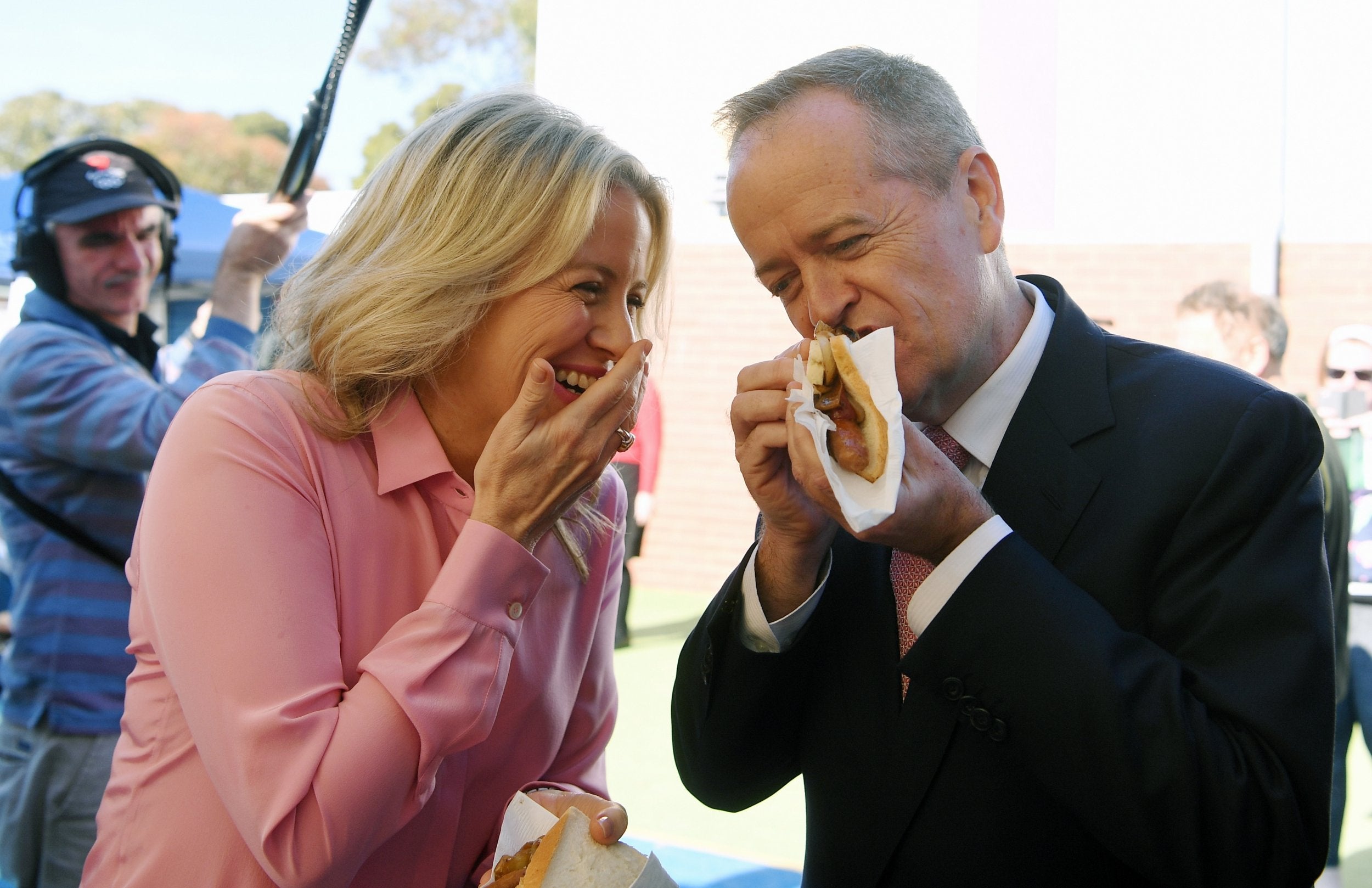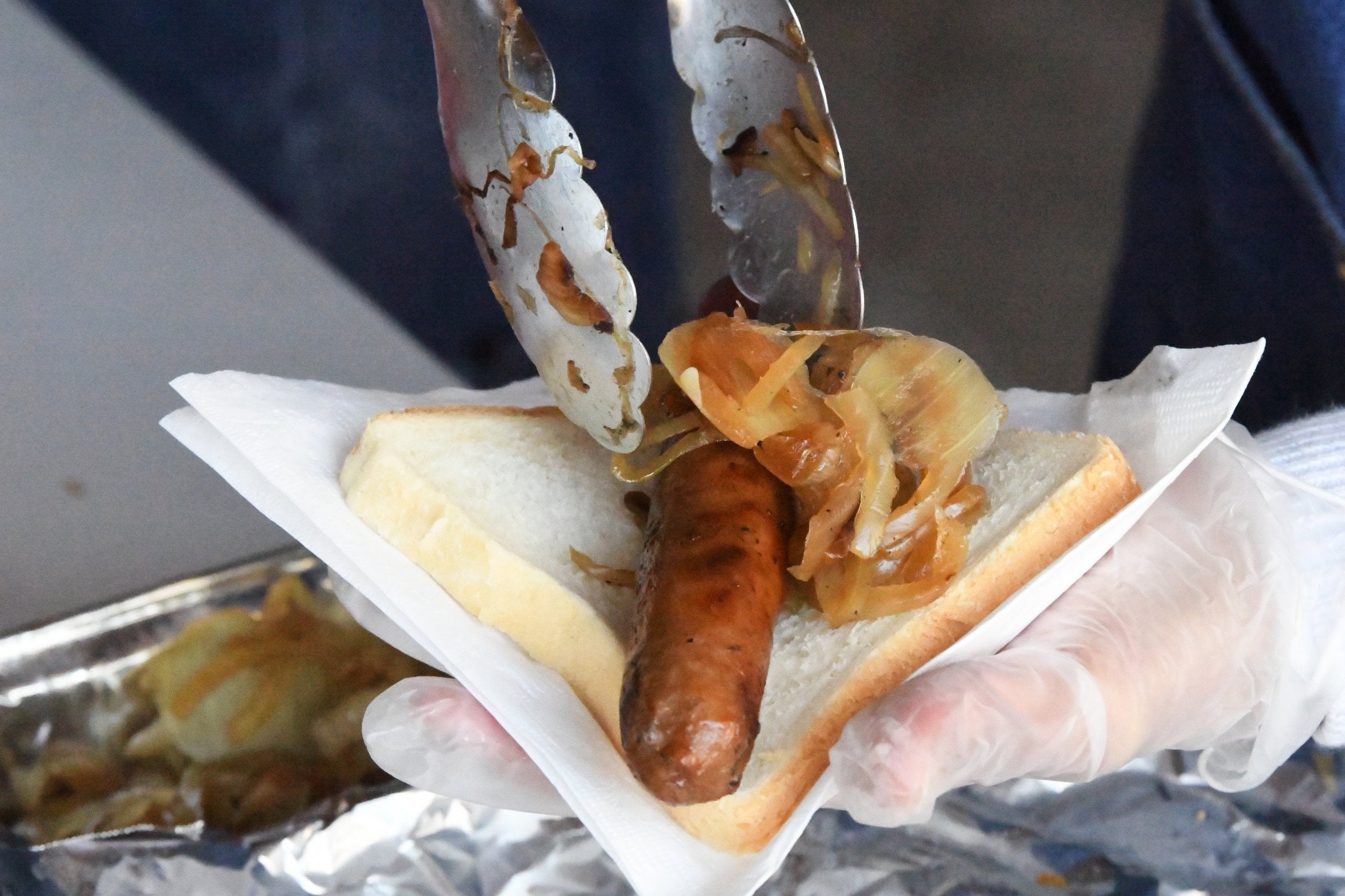Australian election: What is compulsory voting - and why is everyone talking about sausages?
Trend for buying sausages at election polls takes off across country

Your support helps us to tell the story
From reproductive rights to climate change to Big Tech, The Independent is on the ground when the story is developing. Whether it's investigating the financials of Elon Musk's pro-Trump PAC or producing our latest documentary, 'The A Word', which shines a light on the American women fighting for reproductive rights, we know how important it is to parse out the facts from the messaging.
At such a critical moment in US history, we need reporters on the ground. Your donation allows us to keep sending journalists to speak to both sides of the story.
The Independent is trusted by Americans across the entire political spectrum. And unlike many other quality news outlets, we choose not to lock Americans out of our reporting and analysis with paywalls. We believe quality journalism should be available to everyone, paid for by those who can afford it.
Your support makes all the difference.Australians have voted for the country's next leader. The general election, which will determine the nation's sixth prime minister in as many years, has been closely-fought between the conservative Liberal Party, led by current Prime Minister Scott Morrison, and Labor, led by Bill Shorten.
Opinion polls have predicted a win for the opposition, which would mean Mr Morrison, who only became prime minister in August, will have had one of the shortest tenures in the role in the 118-year history of the Australian federation.
By law Australians must vote. We take a look at Australia’s system of mandatory voting, how and whether it works; and investigate why everyone’s suddenly tweeting about sausages.
What is compulsory voting?
Since 1924 Australians have been legally required to enrol to vote in national elections, following a fall in turnout at the 1922 federal election. They are fined $20 if they fail to turn up. As a result, turnout has been as high as 96 per cent in some elections and has never dropped below 91 per cent since mandatory voting was introduced, according to CNN.
Australia is one of only 19 countries out of 166 electoral democracies to make voting compulsory, and is the only English-speaking country to do so.

Is mandatory voting considered a good thing?
Some say it infringes on an individual’s right to abstain from voting. However, many argue in favour of it. In 2015 former US President Barack Obama floated the idea that other countries should adopt “transformative” mandatory voting, too.
It would “counteract money more than anything," he said. "The people who tend not to vote are young, they're lower income, they're skewed more heavily towards immigrant groups and minority groups," Mr Obama said. "There's a reason why some folks try to keep them away from the polls."
In her book, From Secret Ballot to Democracy Sausage, Judith Brett argues compulsory voting has shielded Australia from political polarisation like that which has arguably infected politics in the United States and the UK.

What have sausages got to do with it?
Australians who headed to the polls to vote on Saturday could snag themselves a literal “democracy sausage” to eat. Over recent years, the trend for buying food – mainly sausages – at pop-up stalls outside polling booths has taken off.
Compulsory voting means large numbers of people are guaranteed to turn up to vote, providing an ample fundraising opportunity. That, along with a law which says polling day must always fall on a Saturday, has made the democracy sausage a rite-of-passage.
This year, the democracy sausage has also gone digital, with Australians posting photos under the Twitter hashtag #DemocracySausage and maps springing up to map local sausage stalls. Plus it’s gone international, with sausages at polling booths as far away as New York, Berlin and Japan.
What else do you need to know about the Australian election?
Polls have now closed and the first exit polls put Labor ahead with a slim victory of 52-48 for its leader Bill Shorten. Counting has now begun and the first results are expected later today.
Join our commenting forum
Join thought-provoking conversations, follow other Independent readers and see their replies
Comments